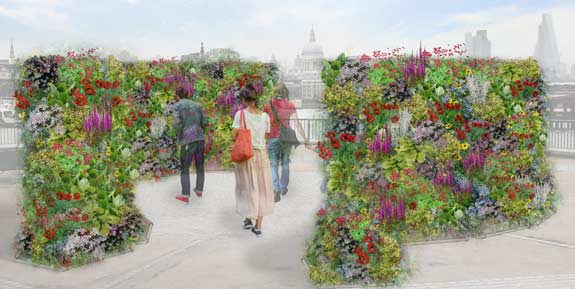|
|
Pop-up, low-allergen garden on London's Southbank. This is what they told us about it:
|
|
Plans for a stunning pop-up, low-allergen garden on London's Southbank have been revealed today. Opening its gates to the public from Thursday 19 June until Sunday 22 June, the garden has been designed using only low-allergen plants. By ensuring that every plant used adheres to strict low-allergen criteria, this vibrant green space offers a haven for everyone this summer.
Articles on allergen-free gardening
|













